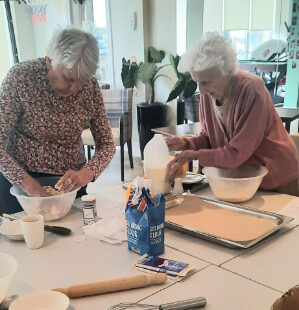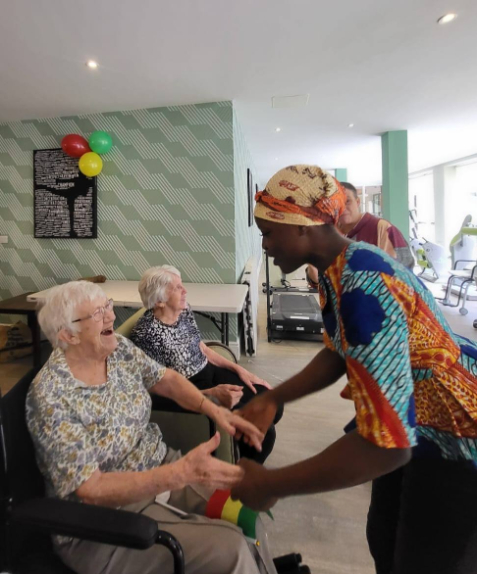How Pet Therapy Brings Joy to Care Home Life
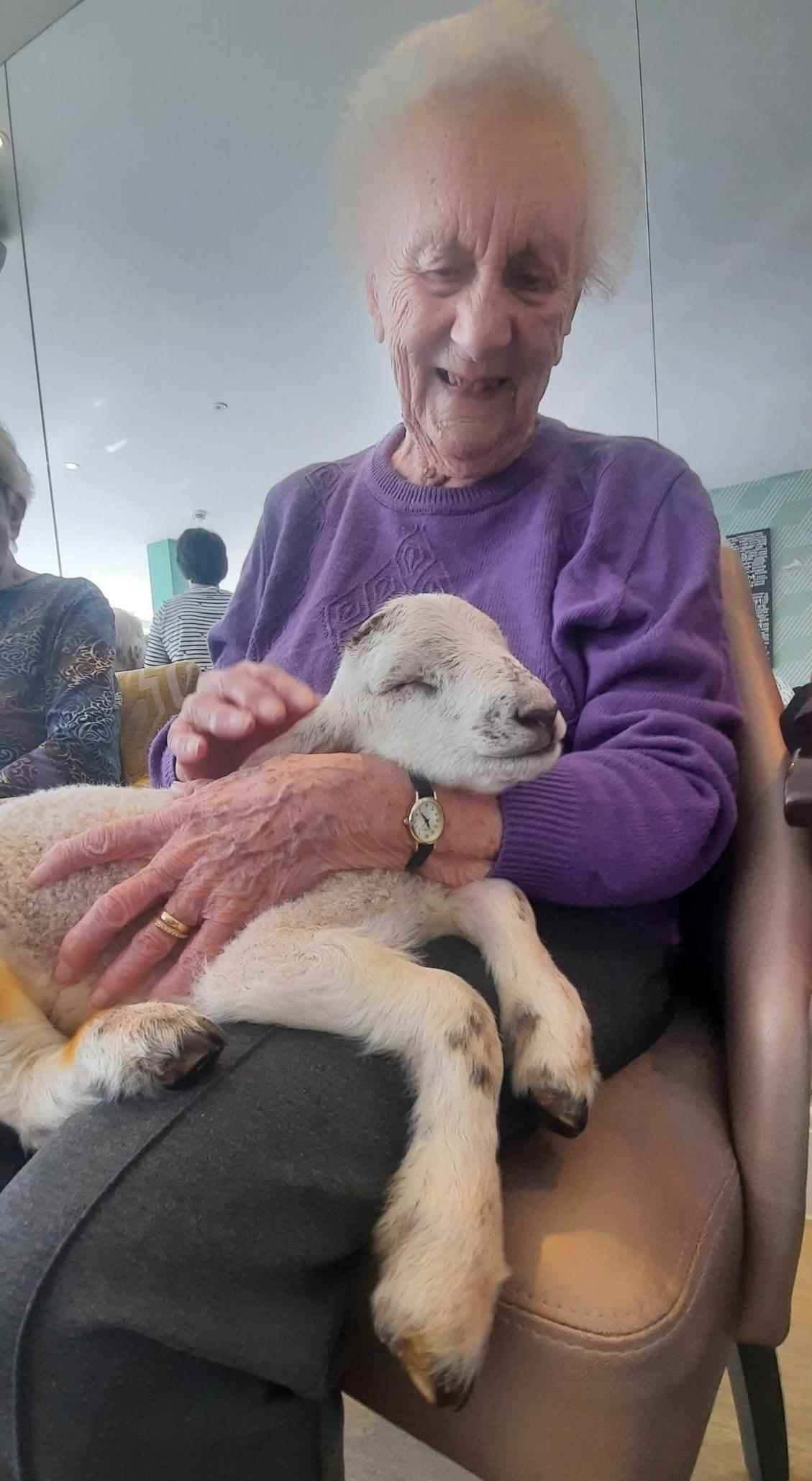
There is something truly special about the bond between people and animals. Whether it is the wag of a dog’s tail, the soft purr of a cat or the calm movements of fish gliding through water, animals have a way of lifting our spirits. For older adults living in a care home, these moments of connection can be powerful. Pet therapy, sometimes called animal-assisted therapy, is becoming increasingly popular across the UK because of the positive impact it has on residents’ physical, mental and emotional health.
Understanding Pet Therapy
Pet therapy is a structured activity where animals visit a care home and interact with residents. The animals might be specially trained therapy pets, or they might simply be gentle and well-behaved companions brought in by their owners. Sessions can take place in small groups or one-to-one, depending on the needs of the residents.
Dogs are perhaps the most common visitors, but many care homes now offer a wide variety of animal encounters. Cats, rabbits, guinea pigs, exotic birds, ponies and even reptiles have all played a part in brightening residents’ days. The goal is simple: create moments of happiness, comfort and connection.
The Power of Companionship
Loneliness and social isolation can affect many older adults, particularly those who have lost a partner or live far from family. Spending time with animals can be an immediate mood booster, helping residents feel loved and valued. Unlike human interaction, animals offer unconditional affection and expect nothing in return. This simple exchange can reduce feelings of loneliness and encourage residents to engage more with others after the session has ended.
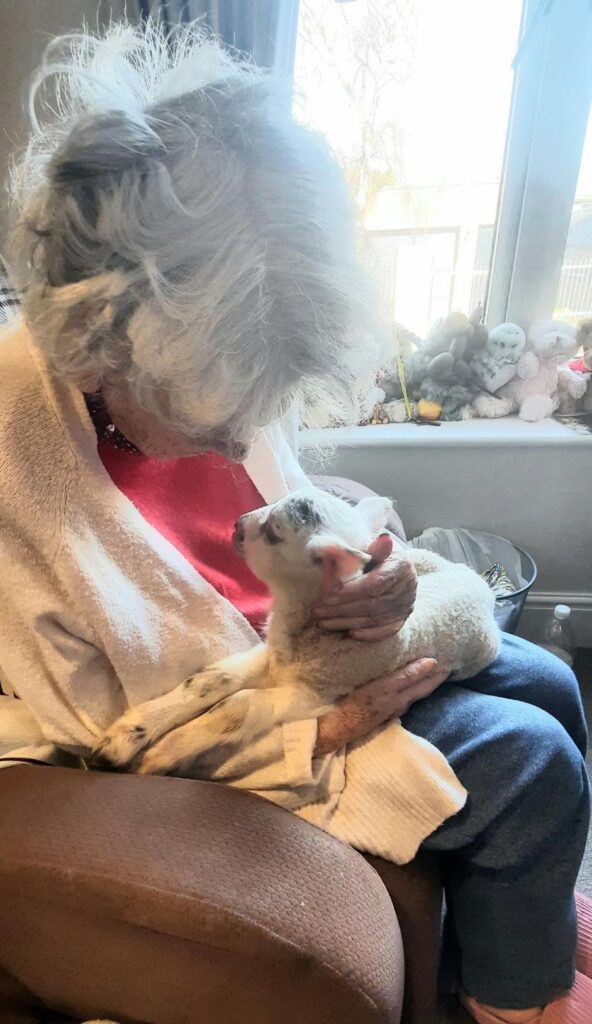
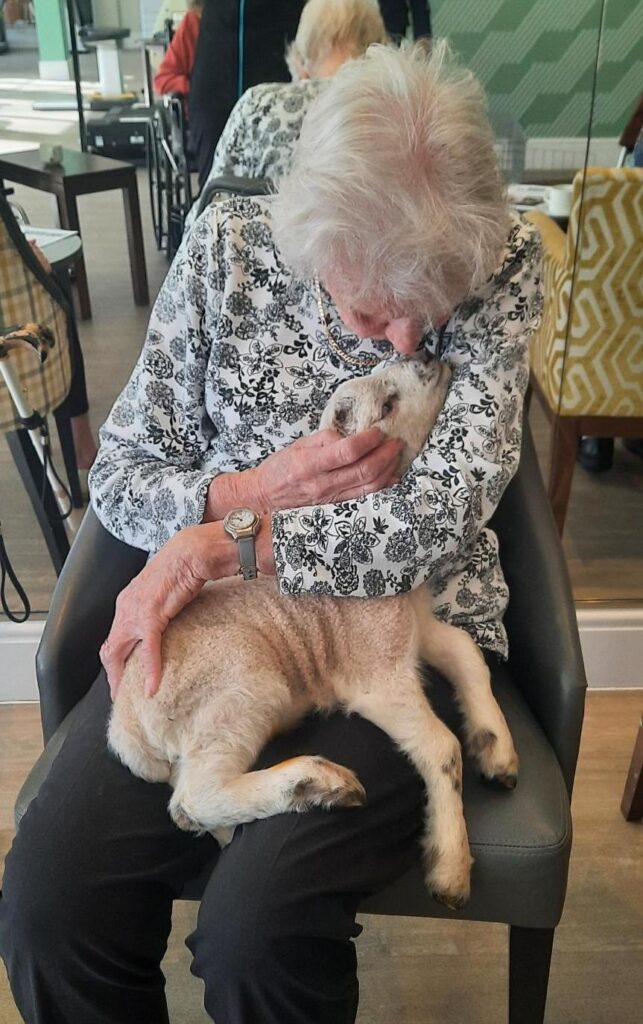
Mental Stimulation and Memory
For residents living with dementia, pet therapy can trigger meaningful memories. Stroking a dog or hearing a cat’s purr might remind someone of a beloved pet from their childhood, sparking stories and encouraging conversation. This kind of mental stimulation can be very powerful, supporting cognitive function and giving residents a sense of connection to their past.
Even for those without memory concerns, animals bring an element of surprise and excitement that breaks up the routine of daily life. Residents may enjoy giving basic commands to a dog, asking questions about the animal, or simply watching them move around the room. These moments all help keep the mind active and engaged.
Emotional Wellbeing and Stress Relief
Spending time with animals can be calming, lowering anxiety and improving overall mood. Studies show that interacting with pets can increase levels of oxytocin and serotonin, the body’s natural “feel good” hormones. At the same time, it helps lower cortisol, the hormone linked to stress.
Residents who may struggle with verbal communication often find it easier to express themselves through touch and eye contact with an animal. This can provide a sense of comfort that words sometimes cannot. The presence of a pet often brings smiles and laughter, creating a more relaxed and cheerful atmosphere throughout the home.
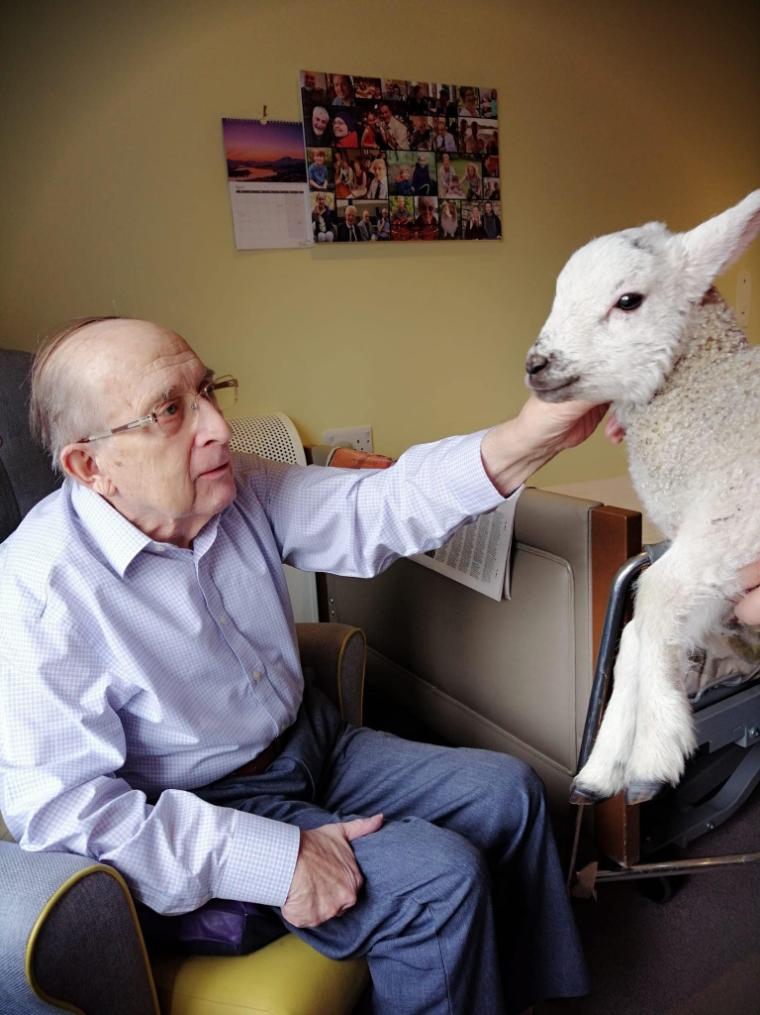
Physical Health Benefits
Pet therapy is not just good for the mind - it can help the body too. Gentle activities such as throwing a ball, brushing an animal’s fur or simply reaching out to stroke a pet can improve coordination, mobility and fine motor skills. For some residents, the motivation to stand up and walk towards an animal can be an important form of exercise that might not happen otherwise.
Spending time with animals has also been linked to lower blood pressure and a healthier heart rate. The simple act of sitting calmly with a pet on your lap can bring about a sense of relaxation that benefits cardiovascular health.
Social Interaction and Community Spirit
Pet therapy sessions are often a highlight of the weekly activities calendar. They bring residents together, encouraging group participation and conversation. Watching a dog do tricks or sharing a memory about a family pet often sparks discussions between residents, helping to build friendships and a sense of community within the home.
This shared enjoyment also extends to staff and visiting family members, who often join in with the sessions, making it a positive experience for everyone involved.
Different Types of Pet Therapy
Animal visits can vary in style depending on the care home and the residents’ preferences. Some homes arrange regular visits from therapy dogs who are specially trained to work with older adults, while others might invite local farms or petting zoos to bring in a variety of animals for residents to meet.
Popular animals used in pet therapy include:
Dogs – friendly and highly interactive, perfect for cuddles and play
Cats – soothing companions, ideal for residents who enjoy quiet moments
Rabbits and guinea pigs – small and gentle, perfect for holding or stroking
Birds – from colourful parrots to smaller songbirds, adding sound and interest
Ponies and farm animals – create a sense of excitement and novelty during special visits
Aquarium fish – bring peace and visual stimulation, even for residents who prefer not to touch animals
Pet Therapy at The Amwell Care Home
At The Amwell Care Home in Melton Mowbray, we are passionate about providing a well-rounded lifestyle for our residents, and pet therapy is an important part of this. We regularly welcome a range of animals into our home, from friendly dogs eager for cuddles to visiting farm animals that delight residents and staff alike.
These sessions are carefully planned so that everyone who wishes to take part can enjoy spending time with the animals in a safe and relaxed environment. Our residents often tell us that pet therapy is one of the most enjoyable parts of their week, giving them something to look forward to and talk about with friends and family.
Why Pet Therapy Matters
Pet therapy is more than just a pleasant activity - it can have lasting effects on a person’s overall wellbeing. By encouraging interaction, improving mood and supporting physical health, it plays an important role in creating a happy, fulfilling life for care home residents.
If you would like to find out more about life at The Amwell Care Home or see a pet therapy session in action, please get in touch with our team. We would be delighted to arrange a visit and show you how we make every day meaningful for our residents.


